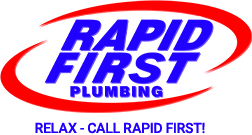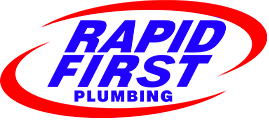Practice drain and sewer safety by never disposing of dangerous or clog-producing materials in any of your drains, including those in your sinks, bathtubs, showers, and toilets. The following liquid and dry substances should never be poured into your household drains.
Food Waste
One of the biggest causes of clogs in sewer, septic, and household drain pipes is fatty material. Fatty pipe cloggers include grease, butter, margarine, and animal-fat trimmings. Hot bacon grease may travel down the drain easily, but it coats the drain pipe and then solidifies as it cools. Other food debris travels down the pipe and sticks to the congealed bacon grease, creating thick clogs of messy gunk over time.
Grease and fats also float. These materials sit on top of your septic tank or sewage pipes and cause water to stop flowing through your system properly.
Other foods to avoid flushing or pouring down the drain include:
- Coffee grounds
- Eggshells
- Cookie and bread dough
- Raw flour
- Produce skins with attached stickers
- Fibrous foods including celery
Foods that expand in water should also never be disposed of in your sink or household drains. Pasta, rice, risotto, and hard grits will expand in water and may cause serious drain problems.
Household Chemicals
If you’re on a septic system, you should never pour any type of bleach down your toilet. Bleach kills the beneficial bacteria that break down septic waste. Without the breakdown of solids in your septic tank, your waste system may clog or fail to drain in your yard properly. You may permanently damage your septic system.
Bleach and cleaning fluids create toxic gasses when mixed together. If you pour bleach and other cleaning agents down your sink drains, and they mix in your pipes, you can contaminate the air in your home with the resulting gas created. The following items should never be poured down the sink with bleach:
- Vinegar
- Ammonia
- Rubbing alcohol
- Acetone
- Toilet cleaner
- Disinfectant cleaners
- Pesticides
Did you know that chloroform is created when you combine bleach with either rubbing alcohol or acetone? Certain drain cleaners contain agents that react with bleach as well.
Understand that if you use two different drain products at once, or you mix a drain product with bleach, the products may react due to alkaline and acid materials mixing in the different products. The mixing of acidic and alkaline materials creates heat and high pressure, as well as releasing chlorine gas. Not only can you cause your pipes to burst, but you can make the air in your entire home toxic to breathe.
Automotive Fluids
Fluids, oils, and grease formulations for vehicles are highly toxic to humans, animals, and plants. To protect the watershed around you, you should never pour these materials down your household drains. Not only can automotive fluids react like the household products listed above, but they leach into small streams, waterways, and eventually the ocean.
California, like many states, has strict rules on the automotive materials that can be disposed of in your waste-water drains and trash bins. Various towns and counties have their own rules about automotive waste as well.
Fortunately, there are Household Hazardous Waste Centers (HHWC) throughout California where you may dispose of your car fluids and used motor oil. The waste centers accept antifreeze, windshield washer fluid, car batteries, car polish, and engine treatments.
HHWCs accept automotive products in sealed containers with working lids. The containers must not leak or be highly breakable. Check your local HHWC for the details on your local disposal and transportation limits.
Paint and Solvents
Latex and oil-based paints are hazardous to people and the environment when disposed of in storm and household drains. It’s never okay to pour excess paint into the toilet, sink, or outside drains.
Paint and paint solvents that are disposed of in the yard or household drains will contaminate the watershed. The materials in the paints and solvents can damage pipes and reduce the effectiveness of sewage treatment methods. If you have leftover household paint, pour it back into the original containers and seal the lids tightly. Never mix oil-based or latex paints.
Dispose of all types of paint at the HHWC. Some people may tell you to “dry up” latex paint by pouring cat litter or other drying agents into the paint can. They claim you can then throw the paint in normal trash. Only latex paint that air-dries to a solid state may be thrown into the trash in California.
The plumbing professionals at Rapid First Plumbing have many more helpful tips on keeping your drains and your home safe and clean. Contact us today to schedule a thorough inspection of your slow or clogged drain pipes. We offer camera video inspection and trenchless repair technology to diagnose and fix your drainage issues.


